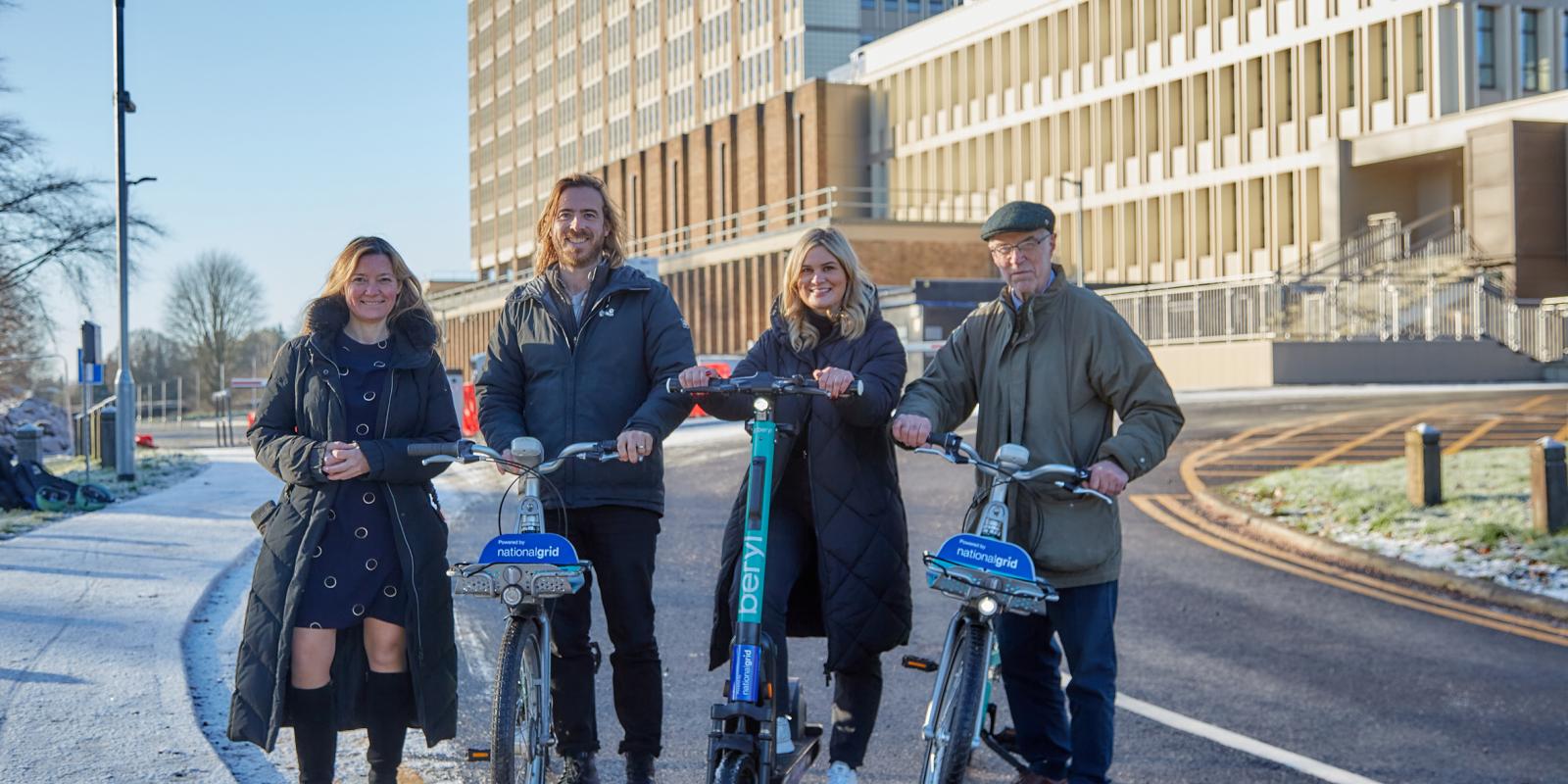By partnering with the UK’s largest electricity transmission and distribution business, National Grid, Beryl will increase the number and reach of schemes across the city designed to get people swapping four wheels for two.
The partnership, which involves National Grid sponsoring Beryl’s Norwich electric fleet, will allow Beryl to run more projects with businesses, charities and community groups, making sustainable travel even more accessible.
By boosting this work, the partnership will help further reduce traffic congestion and carbon emissions, while improving mental and physical health and air quality in Norwich.
Beryl CEO and cofounder, Phil Ellis, said: “This is a fantastic opportunity for us to partner with a globally recognised organisation that shares our outlook and values around the decarbonisation of transport.
“Our Norwich scheme, with its three modes, has proven incredibly popular since we first launched back in March 2020, generating over 761,000 journeys and, according to industry calculations, saving nearly 30 tonnes of CO2.
“We already play a significant role in decarbonising regional transport and I’m confident that this partnership will allow us to build on the work already undertaken and contribute towards a cleaner, greener future.”
Rhian Kelly, Chief Sustainability Officer at National Grid, said: “At National Grid, we’re committed to playing our part in delivering a clean energy transition and tackling high emitting sectors such as transport. Partnering with the communities we serve on projects that will cut carbon emissions strongly aligns with our sustainability values and ambitions, and we’re pleased to collaborate with Beryl on this scheme in Norwich.”
Councillor Lana Hempsall, Sustainable Transport Champion at Norfolk County Council said: “The green bikes and e-scooters are now well known across Norwich and many of our locals and visitors have become ‘Beryl converts’ using them to make those shorter journeys to work, education and leisure, rather than taking their car.
“Having National Grid on board is going to create some great opportunities for our scheme and will allow us to do even more to develop the scheme and encourage even more people to leave the car at home which is key in helping us to achieve our ambitious net-zero objectives.”
With more than 100 ‘Beryl Bays’ installed, 113,793 people in our Norwich scheme’s 68 sq km service area are a 5 minutes walk from a bay. This represents 60% of the service area's population.
Launched as a bike share scheme in March 2020, e-bikes were added to the Norwich scheme on Monday 27 July 2020, followed by e-scooters on Monday 25 January 2021.
Feedback from these e-bike and e-scooter journeys (over 4,000 responses) tells us that almost a third (31.3%) of these journeys have replaced road transport journeys, including driving or being a passenger in a car or using a taxi or a motorbike.
Based on industry calculations, the e-bikes and e-scooters have also saved over 29 tonnes of carbon dioxide emissions in Norwich since their arrivals - the equivalent of 170 flights from London to Edinburgh.
You can hire a Beryl e-bike or an e-scooter through the Beryl app, available for free download on the App Store for iOS, and the Google Play Store for Android users.
E-scooter riders are required to provide a valid UK Driving Licence to participate. They are also asked to provide feedback on their experiences using the vehicles to support data learnings on operating the service.
Beryl e-scooters can be used on roads, cycle lanes, carriageways and other areas where cycling is permitted but not on pavements. Every Beryl e-scooter has vehicle approval from the Department for Transport (DfT), ensuring it meets the highest safety standards. The trial was recently expanded until May 2024 and Beryl will continue to consult with key organisations as it progresses.
For more information on Beryl’s innovative bike share scheme, please visit beryl.cc/bikeshare.
"This is a fantastic opportunity for us to partner with a globally recognised organisation that shares our outlook and values around the decarbonisation of transport."
